Myra joined our Ann Arbor Temple Beth Emeth Generations After community in its first year. She had the unrivaled ability to plumb the emotional depths of our groups difficult legacy, bringing us her enormous heart and creative gifts.
Myra was central to our endeavors as a writer, an editor, and a beloved friend. Her perspectives on her family, Jewish identity, and second-generation Holocaust experience had a profound effect on us, and are reflected throughout this anthology.
Myra died after a valiant battle with cancer, in the midst of our writing this book. It is with great love that we dedicate our book to her.
Foreword
Irene Hasenberg Butter
In 2004, I attended the first Temple Beth Emeth Holocaust Remembrance Day service, written and led by Generations After. The stories that these children of survivors shared about their parents experiences greatly moved me. As a Holocaust survivor who has spent years educating others and working toward peace and tolerance, I recognized the importance of their work.
When I came to the United States in 1945, the American relatives who took me in urged me to forget everything that had happened to my familyand to mein the Holocaust. I was fifteen years old and they were adults, so I listened to them. For forty years I was quiet. I was not truly free until I started to tell what happened to me as a child.
The need to address how the Holocaust impacted me and the world drove me to work toward the establishment of the Raoul Wallenberg Award at the University of Michigan, where I was a professor in the School of Public Health. Raoul Wallenberg, while serving as a Swedish diplomat in Hungary between July and December 1944, saved tens of thousands of Jews from the gas chamber by issuing them protective passports and sheltering them in buildings designated as Swedish territory. With the mission to increase awareness of Wallenbergs heroic life-saving efforts in the Holocaust, each year the Raoul Wallenberg Award continues to recognize and bring to our community humanitarians and scholars working to combat the marginalization of peoples, to promote peace and reconciliation. Some of the past honorees include the Dalai Lama, Elie Wiesel, and Desmond Tutu.
Once retired, I focused on visiting local schools to talk about how I survived during the war. The students were fascinated with my story. I saw their worlds open up in the way my experience resonated for them. Students confided to me that, after hearing my story and seeing how I was able to lead a successful life, they now felt they could overcome trauma in their own lives.
In 2011, I joined the Generations After group in participating in services for our temple community. I described how my idyllic early childhood was quickly followed by the terror and hell of concentration camps, the tragic death of my father, and my separation from my mother and brother when I was sent to a displaced persons camp in North Africa. I contributed perspectives and stories about returning to Germany many years later, where I spoke to high school students, surprisingly in my native German tongue. I also spoke of visiting the Stumbling Stones in front of the home of my grandparents in Berlin. These plaques are installed on the sidewalks in front of Holocaust victims last known place of residence. Since most Holocaust victims do not have a grave, Stumbling Stones return names and places to victims who might otherwise have been forgotten. They serve as concrete individual memorials. I am very grateful to Gunter Demnig, the artist who created the Stolpersteine project, for the work he is undertaking to preserve the history of the Jewish people who were murdered. These have special importance to me, as now my children and grandchildren have an actual place in Germany where they can connect with their ancestors.
As some of the Generations After members began discussing the creation of an anthology based on our services, I encouraged them to focus on their own voices and their own second-generation experiences. I was fascinated by how well they had brought their parents stories to life, but was even more engaged when they shared how these experiences impacted them. Each of them had a unique perspective on the personal effects of this singular tragedy. Each had a vital story to tell. All of them were committed to preserving their stories and insights for future generations. I asked my two children, Noah and Ella, to share a little bit about their own experiences growing up with a mother who had survived the Holocaust. As a small preview of what you will find in this book, here is what they wrote.
Noahs reflection:
I always knew that my mom was a Holocaust survivor. I do not remember not knowing this fact. It was not as if one day my mom sat down with me and explained what had happened to her family when she was an early teen, when they were arrested, taken away from their Amsterdam home, and sent to Westerbork concentration camp, later to be deported to Bergen-Belsen concentration camp.
One of my earliest memories of thinking about the Holocaust was walking with my mom in downtown Ann Arbor. I can still remember a flash of what was happening: we were walking down the street, with pedestrians and cars flowing by us, and I believe we had just come out of a shop. I remember thinking that there was something not quite right about me, some defect that I had, and that perhaps it was because my mom got roughed up in the war. In other words, I was attributing something that I imagined happened to Mom, physically in the concentration camp, to my own, tainted condition.
Ellas reflection:
From a very young age I knew that there was a story that needed to be told. One weekday night when I was about seven years old, in the second grade, I sat down with my mother on my bed and insisted that she tell me the whole story. Intuitively I had the sense that it was my duty and that I was given this responsibility. I think that hearing my mothers story transformed my life. Although I couldnt possibly understand, as such a young child, what it meant to be prisoners of Bergen-Belsen, to starve, and to be covered with lice, I listened attentively and made my mothers experience part of my personal journey. There were always more questions to be asked, and when I was in junior high school and had to choose a topic for my speech, I knew it would be the persecution of the Jews during World War II. As part of my presentation, I asked my mother to describe life in the concentration camps. I believe this was the first time she told her story in front of a group of teenagers.
When I was in my first year of law school at Tel Aviv University, I came upon an announcement about the first Holocaust survivors gathering, to be held in Israel. It was obvious that my mother and I should be there together. We were on the bus to Kibbutz Netzer Sereni, and I fell asleep. When I woke up, there were children on the bus handing out flowers. This brought tears to my mothers eyes. Who would have imagined, in the midst of the Holocaust, that there would one day be children greeting survivors laden with flowers?
The Holocaust has always been for me a sign of the evil we are capable of. When I say we, I mean that its not merely the Germans who were capable of such atrocities. We the human race are all responsible and must find ways to fight our dark side. I felt the urge to study law and to fight for human rights and justice. My whole life I have felt that it is our responsibility and duty to stand up against injustice, to see the pain our neighbors are feeling and to bear that with them. Having endured my own share of crises and difficulties, I know what suffering is like. Whenever we bear a family history of the Holocaust or any other form of persecution, it shapes us into the humans we are. I look at my mother and see how such suffering can be transformed into love and care for others. Becoming a compassionate human being is what I would say growing up with the Holocaust is all about.

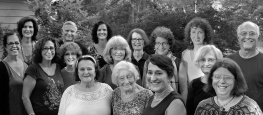

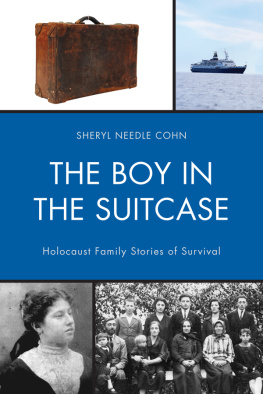
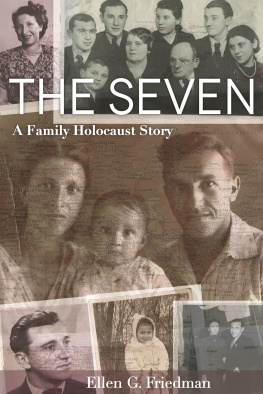
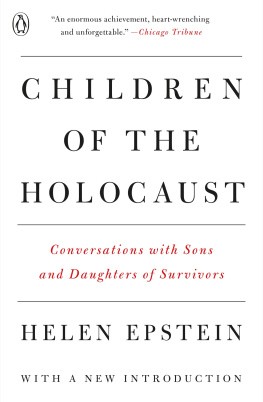
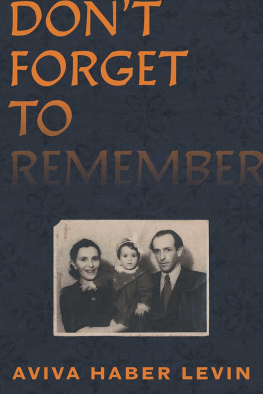
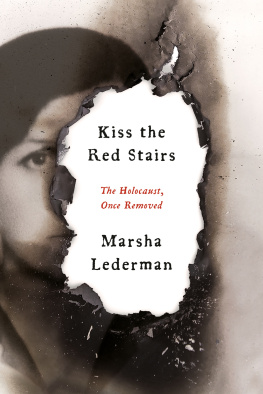
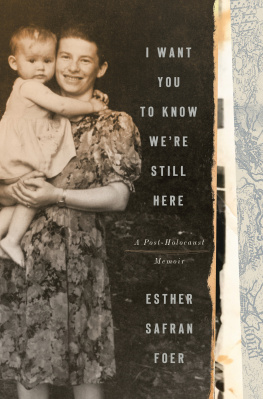
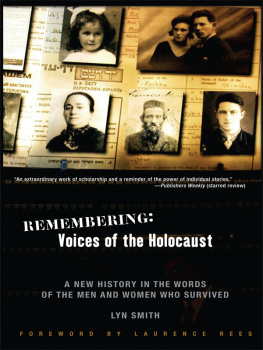
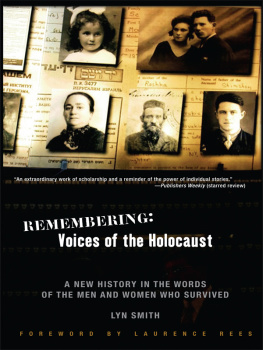

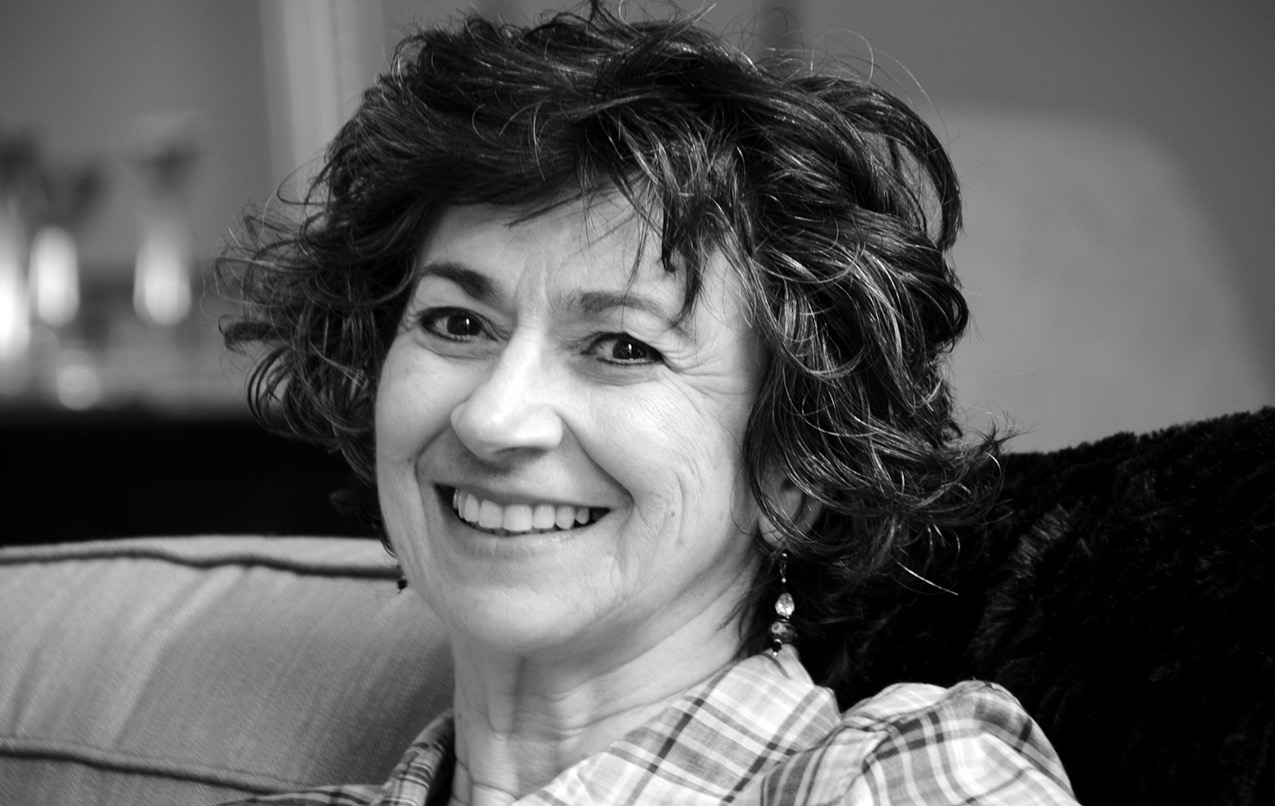 Myra Fox, Ann Arbor, Michigan, 2018
Myra Fox, Ann Arbor, Michigan, 2018